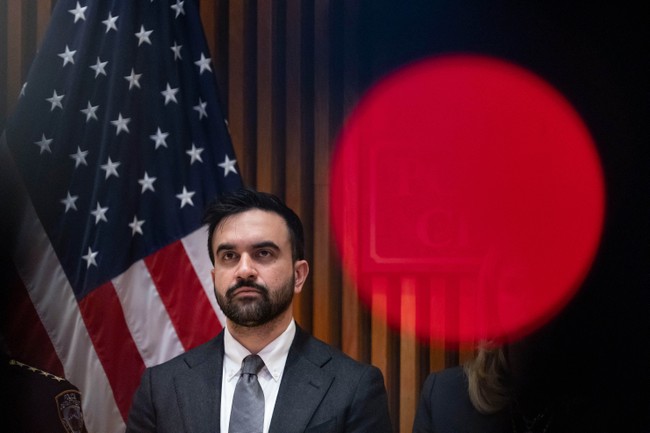0 Commentarii
0 Distribuiri
20 Views

Director
Elevate your Sngine platform to new levels with plugins from YubNub Digital Media!
-
Vă rugăm să vă autentificați pentru a vă dori, partaja și comenta!
-
 YUBNUB.NEWSGreenlands position in NATO and transatlantic security[View Article at Source]The National Security Hour with Col. Mike and Dr. Mike While the issue has yet to play itself out, Mr. Helegesen said he thought there was room for a compromise based on the0 Commentarii 0 Distribuiri 20 Views
YUBNUB.NEWSGreenlands position in NATO and transatlantic security[View Article at Source]The National Security Hour with Col. Mike and Dr. Mike While the issue has yet to play itself out, Mr. Helegesen said he thought there was room for a compromise based on the0 Commentarii 0 Distribuiri 20 Views -
 YUBNUB.NEWSThe Clintons return to the Capitol to testify[View Article at Source]After Dark with Hosts Rob & Andrew Former President Bill Clinton and Hillary Clinton return to Capitol Hill under subpoena to testify about their ties to Jeffrey Epstein.0 Commentarii 0 Distribuiri 20 Views
YUBNUB.NEWSThe Clintons return to the Capitol to testify[View Article at Source]After Dark with Hosts Rob & Andrew Former President Bill Clinton and Hillary Clinton return to Capitol Hill under subpoena to testify about their ties to Jeffrey Epstein.0 Commentarii 0 Distribuiri 20 Views -
 YUBNUB.NEWSLiberal Social Media Influencer Accused of Racism in Viral PostEd Krassenstein, the left-wing influencer who has made a career out of attacking President Trump on social media, just had one of those spectacular faceplant moments that remind everyone why he has no0 Commentarii 0 Distribuiri 20 Views
YUBNUB.NEWSLiberal Social Media Influencer Accused of Racism in Viral PostEd Krassenstein, the left-wing influencer who has made a career out of attacking President Trump on social media, just had one of those spectacular faceplant moments that remind everyone why he has no0 Commentarii 0 Distribuiri 20 Views -
 YUBNUB.NEWSInside the Epstein files: Facts, speculation, and the truth we still dont know[View Article at Source]The Hidden Lightness with Jimmy Hinton If the Epstein files ultimately expose criminal behavior by anyonepoliticians, billionaires, celebrities, or institutionsthose0 Commentarii 0 Distribuiri 20 Views
YUBNUB.NEWSInside the Epstein files: Facts, speculation, and the truth we still dont know[View Article at Source]The Hidden Lightness with Jimmy Hinton If the Epstein files ultimately expose criminal behavior by anyonepoliticians, billionaires, celebrities, or institutionsthose0 Commentarii 0 Distribuiri 20 Views -
 YUBNUB.NEWSCoast Guard Allegedly Discovers Stowaway With Nearly 800 Pounds Of Cocaine In Puerto Rico HarborFederal authorities arrested a suspected drug smuggler after allegedly finding him floating in a Puerto Rico harbor with nearly 800 pounds of cocaine. The U.S. Coast Guard (USCG) announced Monday that0 Commentarii 0 Distribuiri 20 Views
YUBNUB.NEWSCoast Guard Allegedly Discovers Stowaway With Nearly 800 Pounds Of Cocaine In Puerto Rico HarborFederal authorities arrested a suspected drug smuggler after allegedly finding him floating in a Puerto Rico harbor with nearly 800 pounds of cocaine. The U.S. Coast Guard (USCG) announced Monday that0 Commentarii 0 Distribuiri 20 Views -
 YUBNUB.NEWSDid Mayor Mamdani Just Appoint an Antisemite to the City Office of Antisemitism?For those who doubted whether New York City Mayor Zohran Mamdani would maintain his antisemitic stance toward Israel and New York City Jews once he took office, proof positive of Hizzoner's feelings was0 Commentarii 0 Distribuiri 7 Views
YUBNUB.NEWSDid Mayor Mamdani Just Appoint an Antisemite to the City Office of Antisemitism?For those who doubted whether New York City Mayor Zohran Mamdani would maintain his antisemitic stance toward Israel and New York City Jews once he took office, proof positive of Hizzoner's feelings was0 Commentarii 0 Distribuiri 7 Views -
 YUBNUB.NEWSyourHEALTH News: Measles Outbreak Continues, Health Officials Urge Vaccination[embedded content]Health officials are urging the public to get youth inoculated against the measles at a time of outbreaks across several states in the U.S. This comes amidst the United States being0 Commentarii 0 Distribuiri 20 Views
YUBNUB.NEWSyourHEALTH News: Measles Outbreak Continues, Health Officials Urge Vaccination[embedded content]Health officials are urging the public to get youth inoculated against the measles at a time of outbreaks across several states in the U.S. This comes amidst the United States being0 Commentarii 0 Distribuiri 20 Views -
 WWW.LIVESCIENCE.COMOnly certain types of brain-training exercises reduce dementia risk, large trial revealsA large, 20-year trial showed that speedy cognitive exercises could reduce the risk of Alzheimer's disease and other types of dementia. The question is, could these tasks be adapted into video games?0 Commentarii 0 Distribuiri 20 Views
WWW.LIVESCIENCE.COMOnly certain types of brain-training exercises reduce dementia risk, large trial revealsA large, 20-year trial showed that speedy cognitive exercises could reduce the risk of Alzheimer's disease and other types of dementia. The question is, could these tasks be adapted into video games?0 Commentarii 0 Distribuiri 20 Views -
Save 30% on the ultra-portable Ultimate Ears Wonderboom 4 Bluetooth speakerBest portable speaker deal: Save 30% on the Ultimate Ears Wonderboom 4 SAVE $30: As of Feb. 10, the Ultimate Ears Wonderboom 4 is on sale for just $69.99 at Amazon. That's 30% off its list price of $99.99. $69.99 at Amazon...0 Commentarii 0 Distribuiri 39 Views



